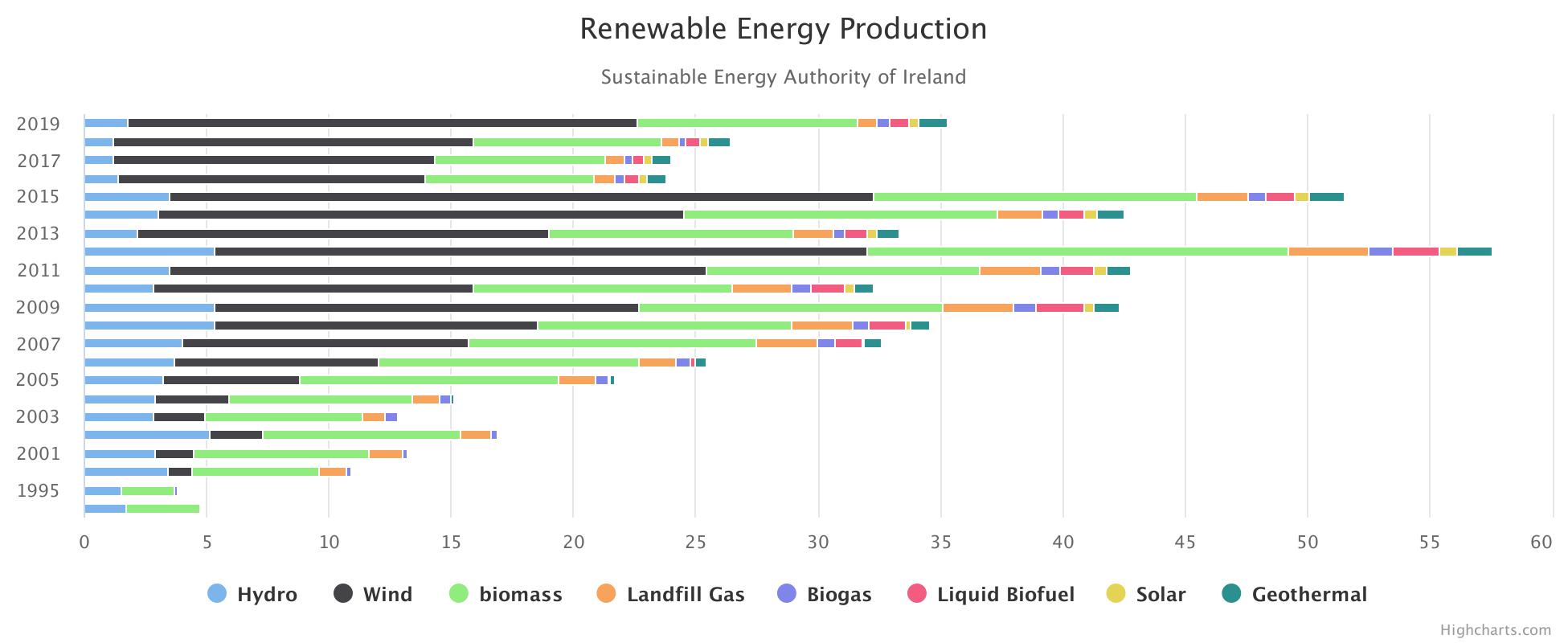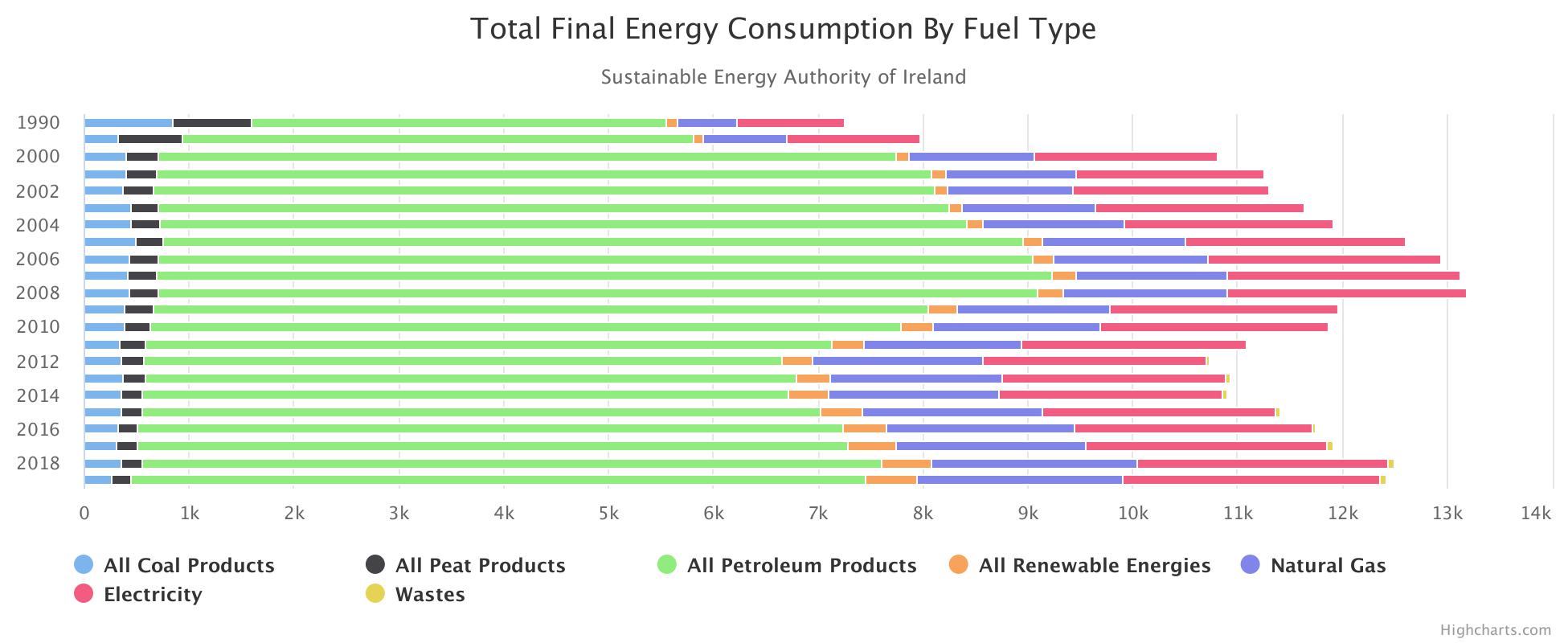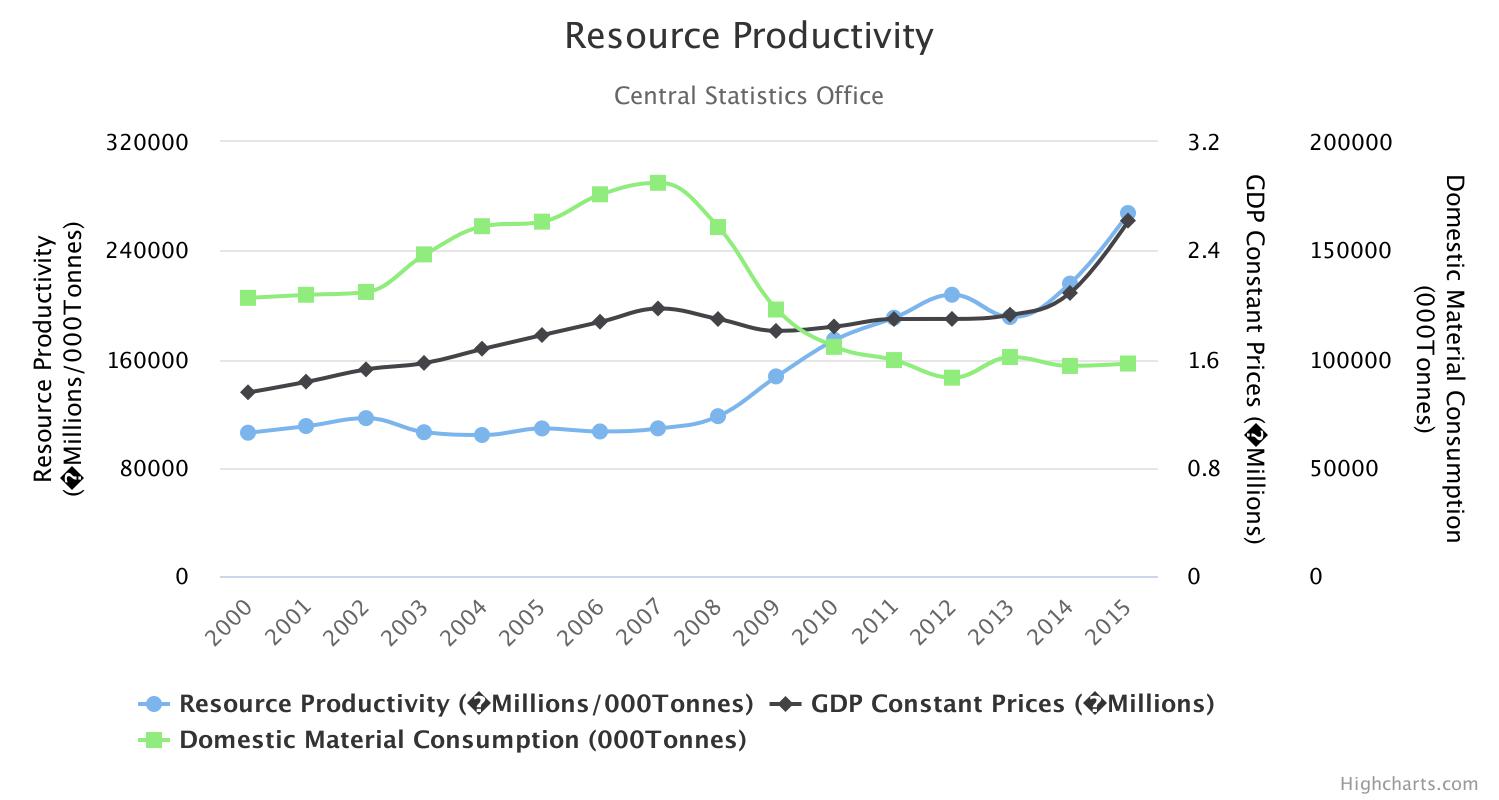Current trends towards a sustainable economy

One of the key drivers for an economy that is sustainable is the concept of building a ‘circular’ economy, so reducing waste and ensuring that materials are used as efficiently as possible. Every year, Ireland uses over 100 million tonnes of materials. Too much of the waste from this often ends up in landfill or an incinerator after only a short period of use.
Circular economy trends include:
- Green Public Procurement (GPP), a process where public and semi-public bodies meet their needs for goods and services by choosing solutions that have a reduced impact on the environment throughout their life-cycle.
- Corporate social responsibility (CSR), a voluntary action by companies to integrate social and environmental concerns into their mainstream business operations. Well-established in Ireland, CSR goes beyond compliance with legislative requirements and involves commitment by companies to carry out their business in an ethical and responsible way.
- Non-financial reporting, a requirement by EU law since 2018 that companies include statements in their annual reports to disclose information about how they manage social and environmental challenges. This helps investors, consumers, policy makers and others to evaluate the non-financial performance of large companies and encourages these companies to develop a responsible approach to business.
Learn more about sustainable economy
Causes of unsustainable economic activity
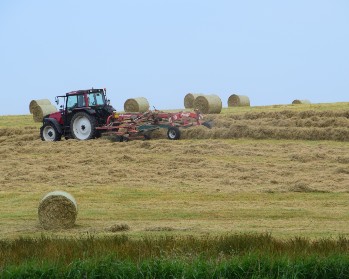
Better integration and coherence between environmental, economic and social policy needs can decouple economic activity and growth from environmental impact.
Environmentally harmful subsidies can lead to lock-in of unsustainable technologies and infrastructure, as well as poor decision making, hindering businesses from investing in more sustainable technologies. Globally, it is estimated that such subsidies are worth €1 trillion per year, notably in the areas of fossil fuels, transport and water. Environmentally harmful subsidies lead to higher levels of waste, polluting emissions (including climate change gases), inefficient resource extraction and negative impacts on biodiversity.
The EU Commission sees environmental taxation as an essential market mechanism to address any pricing market failures. The State will need to undertake a review of environmentally harmful subsidies that may be operating and set about eliminating them.
Learn more about the causes of unsustainable economic activity
Outlook for a sustainable economy

Sustainable competitiveness should be at the heart of thinking about sustainability. We must all learn to live, produce and consume within the physical and biological limits of the planet. Competitive economies tend to be more innovative, more resilient and better able to respond to external shocks and, therefore, maintain high levels of prosperity into the future.
Growing population, the competition for diminishing resources, the appropriate recognition of ecosystem services and natural capital, as well as the adaptive challenges arising from our changing climate and our national climate change commitments require ambitious social and economic interventions and responses. We will need to put economies on a more sustainable footing, resulting in a resource-efficient, carbon-neutral, circular economy. This will require an all-of-society response. Essentially we have to rethink and redesign what we mean by social and economic ‘prosperity’ to deliver the resilience essential for us to prevail.


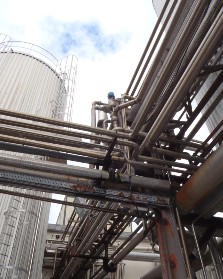

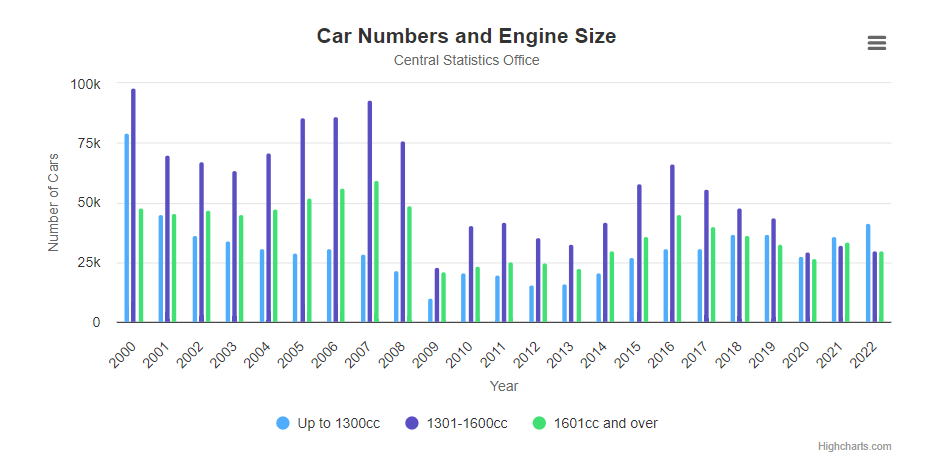
.jpeg)
